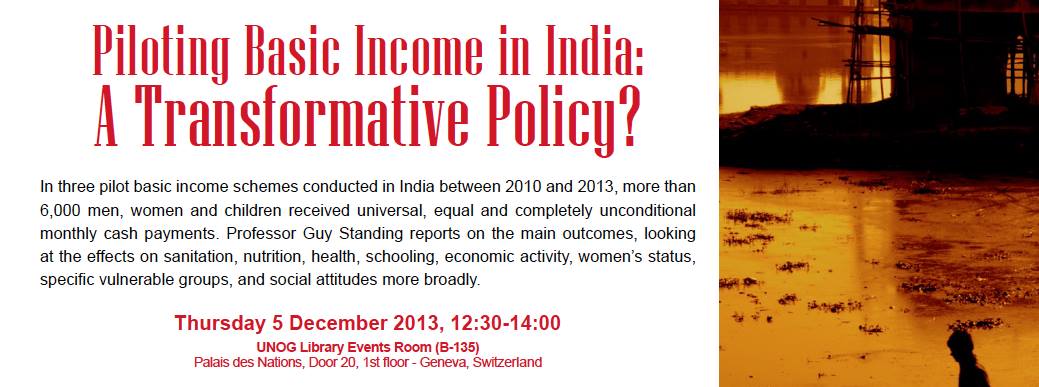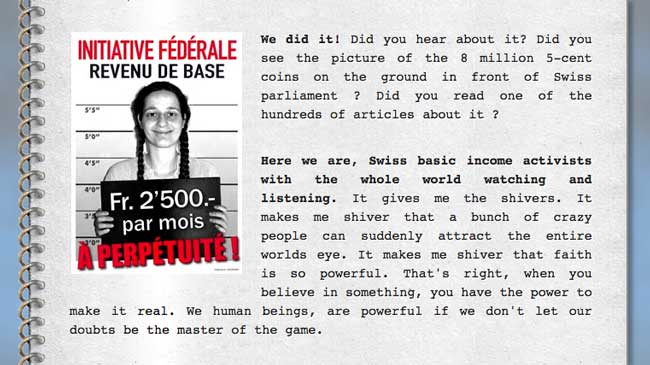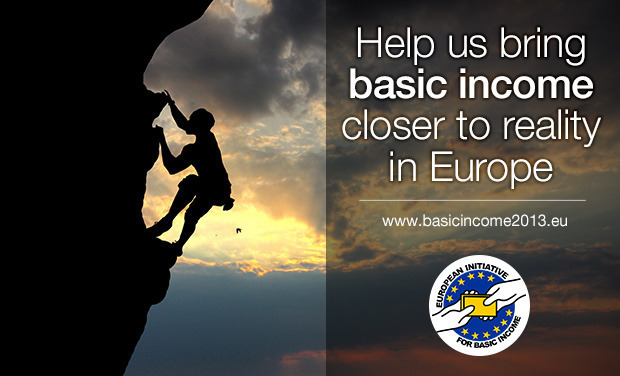Basic Income Earth Network - Switzerland
Andreas Gross : "Das bedingungslose Grundeinkommen ist ein Beitrag zur Demokratisierung der Demokratie"
 Andreas Gross ist eine Galionsfigur der Demokratie in der Schweiz und für die Schweiz im Europarat. Er ist für den Kanton Zürich als Nationalrat im Schweizerischen Parlament. Er war Mitbegründer der Volksinitiative für die Abschaffung der Schweizer Armee. [+]
Andreas Gross ist eine Galionsfigur der Demokratie in der Schweiz und für die Schweiz im Europarat. Er ist für den Kanton Zürich als Nationalrat im Schweizerischen Parlament. Er war Mitbegründer der Volksinitiative für die Abschaffung der Schweizer Armee. [+]
- Print node
- Login to post comments
- 12761 reads
Öffentliche Tagung im Basel: Bedingungsloses Grundeinkommen in Japan und in der Schweiz
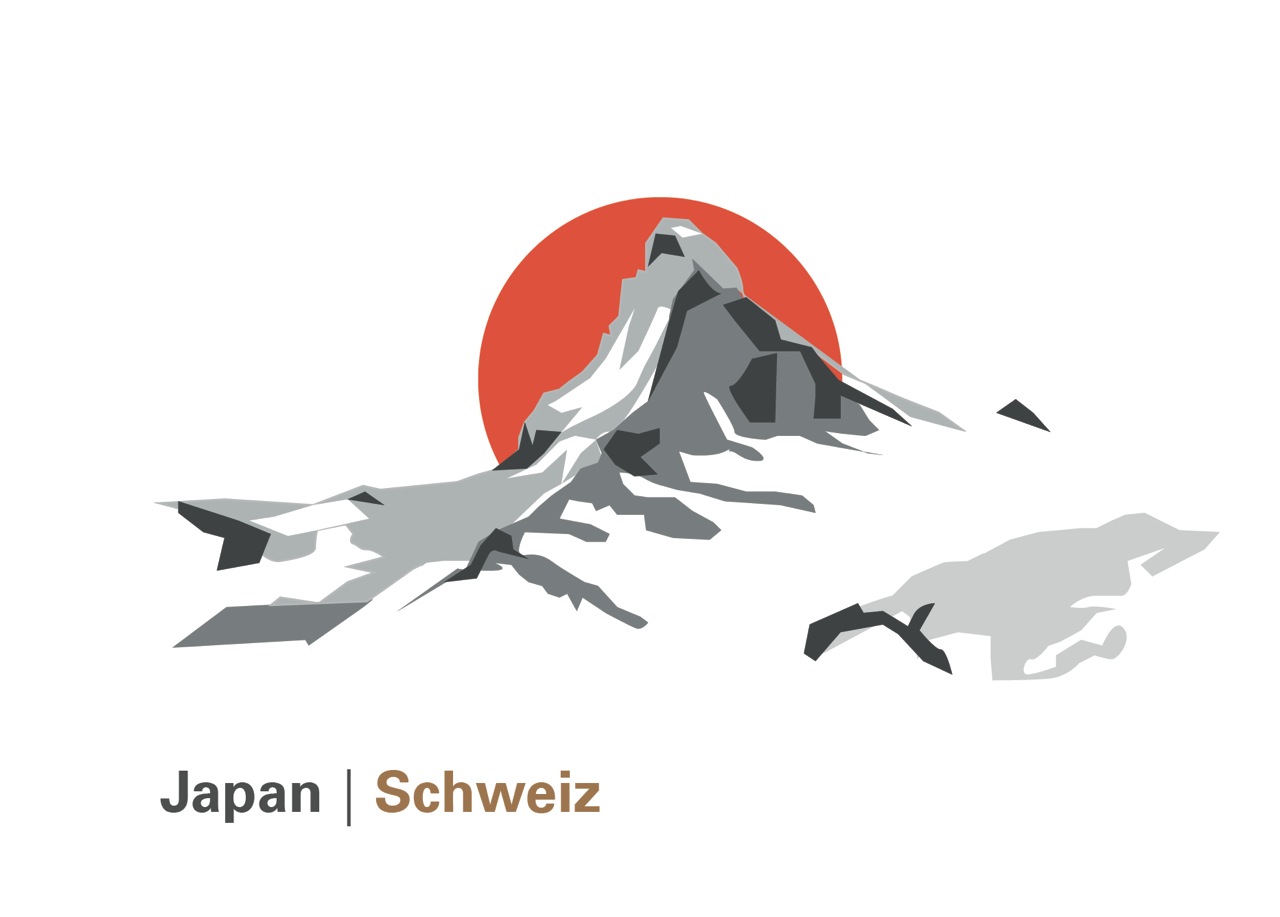 Datum: Samstag, 25.01.2014, 11.00 - 19.00
Datum: Samstag, 25.01.2014, 11.00 - 19.00
Öffentliche Tagung im Stadtcasino Basel, Hans Huber-Saal, Steinenberg 14, 4051 Basel
Eintritt frei, simultan Japanisch und Deutsch übersetzt
Veranstalter: Stiftung Kulturimpuls Schweiz
Konzept: Enno Schmidt und Birgit Ebel
Reservierung möglich:
Birgit Ebel, birgit@grundeinkommen.ch
- Print node
- Login to post comments
- 19789 reads
Pilote experiences: India on the go to a new paradigm?
What if your lunch break of Thursday noon took place in India?
We have the pleasure to welcome Guy Standing in Geneva. He will present us the pilot experiments of basic income led in India between 2010 and 2013.
Pilot experiments of unconditional income: does India go to a change of paradigm?
- Print node
- Login to post comments
- 33847 reads
We the Swiss, calling on the world!
If you want to know more about the Swiss activists movement and how thrilling its story is, just read this article's blog by Anne-Béatrice Duparc : We the Swiss, calling on the world! Definitely, "this is not the story of Switzerland anymore. This is the story of YOU and ME, us ALL, humanity."
Excerpt of the blog's article:
- Print node
- Login to post comments
- 20143 reads
What Would a Basic Income Actually Cost?
- Print node
- Login to post comments
- 14552 reads
How to Cut the Poverty Rate in Half (It's Easy)
How to Cut the Poverty Rate in Half (It's Easy)
« In the United States, we are generally told that poverty is a deeply complicated problem whose solution requires dozens of reforms on issues as diverse as public schooling, job training, and marriage.
But it’s not true. High rates of poverty can, as a policy matter, be solved with trivial ease. How? By simply giving the poor money. »
Shoppers at a food pantry (Reuters)
« The idea also attracts an interesting assortment of political support. Those backing the concept of a basic income have spanned the entire spectrum from left-wing redistributionists like Martin Luther King, Jr. to conservative icons like F.A. Hayek, Milton Friedman, and Charles Murray. »
« That security might not just keep people out of poverty. It might let workers demand better wages and working conditions, because they know they always have something to fall back on. In other words, it could level the playing field for the bottom 99 percent. »
This story published in The Atlantic magazine (millions of monthly visitors) the 29th of October shows that the introduction of an universal basic income in the united States is possible.
Original page: « How to Cut the Poverty Rate in Half (It's Easy) » [+]
- Print node
- Login to post comments
- 25354 reads
Business Insider: A Simple Solution To Ending Poverty
« Everyone's Talking About This Simple Solution To Ending Poverty By Just Giving People Free Money. »
This story on the universal basic income published the 12th of November on Business Insider was written by David Vinik, political reporter. Business Insider is a U.S. business and technology news website launched in February 2009, based in New York City, which draws millions of visitors.
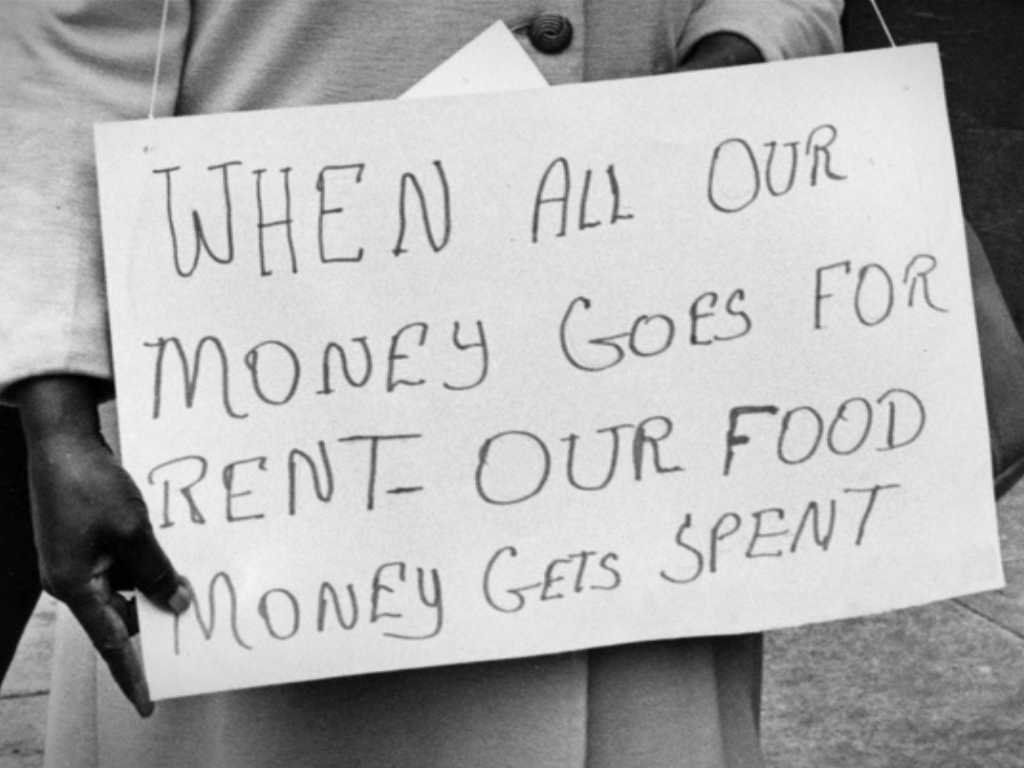
Real wages have been stagnant in America for decades now and income inequality has grown immensely. In the aftermath of the Great Recession, it’s only gotten worse. The Census Bureau reported in September that the 15 percent of Americans (46.5 million) live below the poverty line.
« Real wages have been stagnant in America for decades now and income inequality has grown immensely.In the aftermath of the Great Recession, it’s only gotten worse. The Census Bureau reported in September that the 15 percent of Americans (46.5 million) live below the poverty line. Government benefits like food stamps and TANF help lift some of them above the line, but millions still live below it.
« Economists have long shuddered at the thought of a basic income, because it strongly disincentives work. However, a basic income is just that: basic. Most adults would continue to work to earn extra money. The employment effects would not be non-existent and there may be an increase in part-time work. As Lowrey points out, different studies have found the disincentive effects on work are not as strong as economists feared. »
Read full story on Business Insider. [+]
- Print node
- Login to post comments
- 43664 reads
New-York Times for basic income !

« Basic Income keeps rocking the boat on the US press. This November 12th, New York Times presented the Swiss initiative for basic income and endorsed the possibility of applying such a model in the United States.
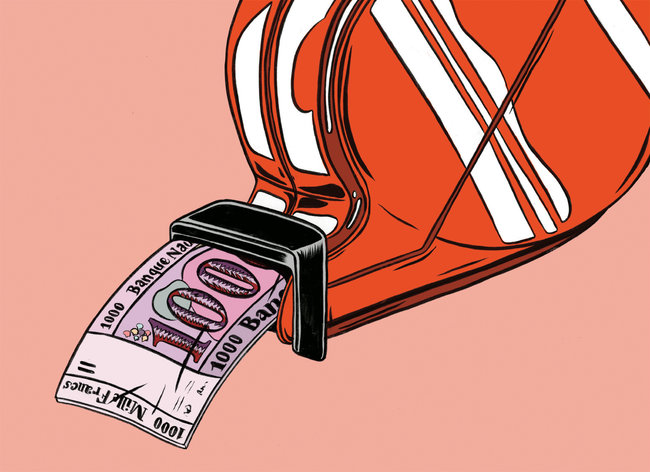
Illustration: Kelsey Dake
Economic journalist Annie Lowrey also explains the positive effects of the Mincome pilot test, run on Canadian town of Dauphin, whose residents have been receiving a basic income for many years: [+]
- Print node
- Login to post comments
- 9496 reads
Success for the European Citizens' Initiative: €15,000 collected in two days!
The campaign of participative financing of the European movement for a basic income started on November 7th. In two days it already overtook the objective fixed by 15'000€. It still lasts until November 21st.
European Citizens' Initiative for Unconditional Basic Income (www.basicincome2013.eu) proposes a new form of total social security for all citizens. It aims to eradicate poverty, protect people from the consequences of un(der)employment and recognize the essential labor which happens outside the market. Our goal is to collect 1 million signatures by January 2014 to force the European Commission to do research into the policy and organise an official hearing about basic income in the European Parliament. [+]
- Print node
- Login to post comments
- 15836 reads
Citizen’s initiative formally accepted

Today November 8, 2013, the Federal Chancellery of Switzerland announced that the citizen’s initiative for an Unconditional Basic Income has been formally accepted. It stated that after the validation of the signatures on 4 October, 126,408 valid signatures were submitted. Thus, the Federal Chancellery of Switzerland confirms formally: There will be a national referendum on Unconditional Basic Income.
What's next now? The Federal Council will consider Basic Income and prepare a report on it. This will take about one year. Afterwards there will be a debate in the parliament. The national referendum will follow in two to three years.
The question is: Should each person in the country receive the financial basis for a living unconditionally?
Enno Schmidt & Daniel Straub [+]
- Print node
- Login to post comments
- 9885 reads

